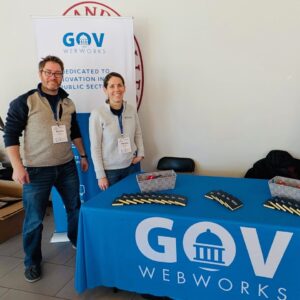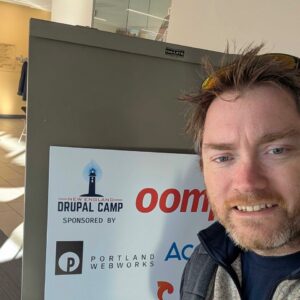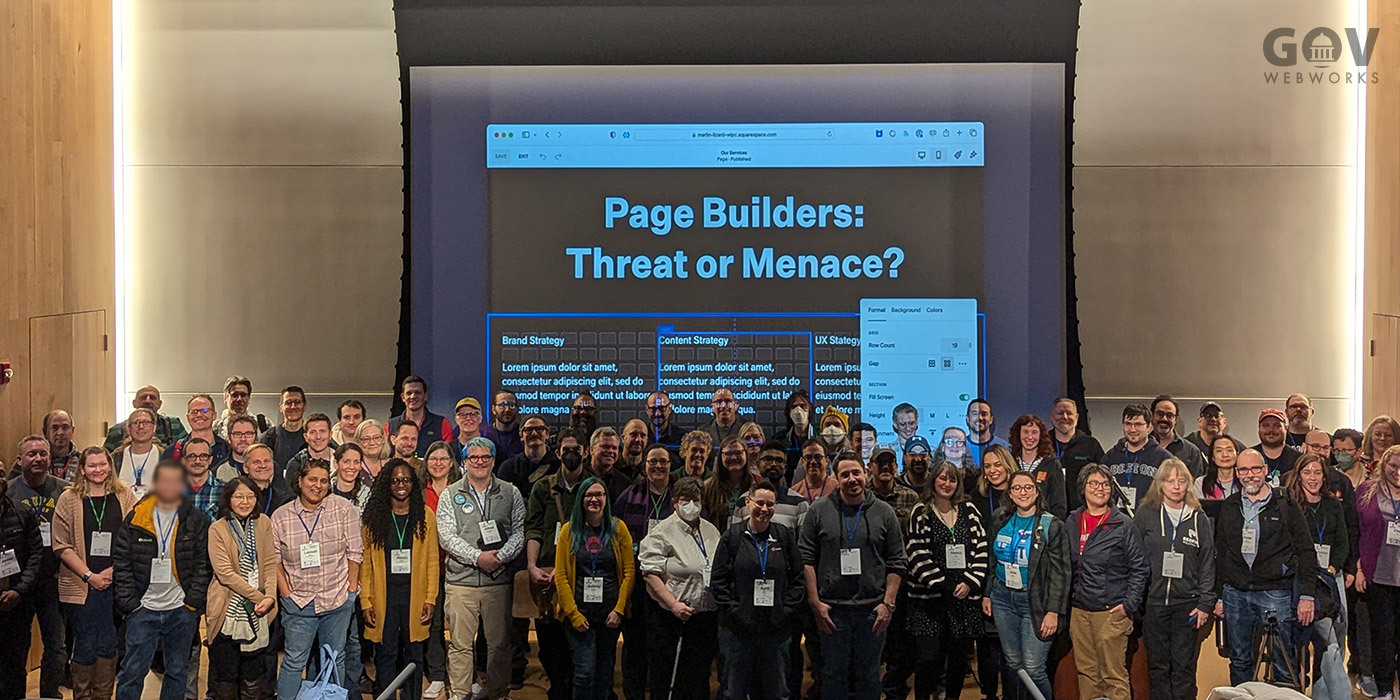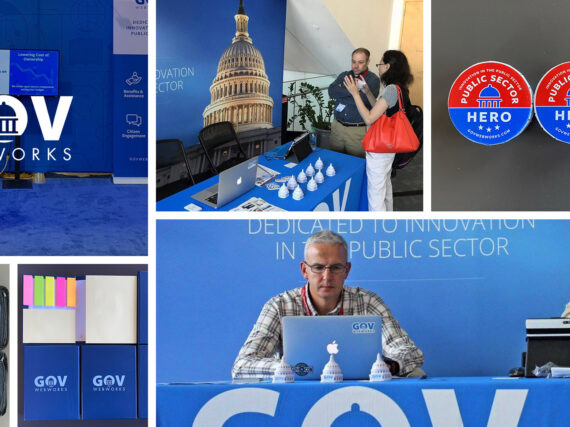As a corporate sponsor for NEDCamp 2024, three developers from GovWebworks made the trip down to Rhode Island College for the event in November. The annual gathering drew a mix of developers, strategists, and open-source enthusiasts to share ideas, collaborate on solutions, and learn from one another.

We enjoyed the workshops and discussions focused on the ways Drupal’s open-source content management system is solving complex problems across industries. NED Camp provided many examples of how Drupal continues to shine as a robust and adaptable platform for building modern digital experiences.
For our team, the highlights and key takeaways included:
- Moving beyond page builders
- Technology adoption rubrics
- Investigative UX
- Recipe Ecosystem
- IXP Initiative
Here’s what we learned.
Moving beyond page builders
Keynote speakers Karen McGrane and Jeff Eaton, partners at Autogram who have worked in the industry for 25 years (including stints at Bond Art + Science and Razorfish for Karen) took on the topic of page builders. While many large agencies are leveraging Drupal to create robust and varying types of content, the speakers argued that real expertise is still required to implement these sites effectively in order to reduce the cost of ownership. This topic resonated with us, as our team has long recognized our role in simplifying complex content and workflows for public agencies so they can utilize public dollars in a responsible and sustainable way.
The speakers noted that while page builders can support unanticipated publishing needs quickly, at scale they can make it difficult to use and govern content. They encouraged agencies to move beyond page builders with the help of vendors who know the ropes. Some suggestions included utilizing structured content types as much as possible instead of page builder pages. They also recommended the use of content governance practices to determine if a structured content type can be put in place or if page builders are really needed. Another good practice is reviewing a site’s content, specifically the page builder content, to identify themes for new structured content types into which the page builder pages can be migrated.
Technology adoption rubrics
One of the more practical sessions at NED Camp centered on the importance of a Technology Adoption Rubric to guide organizational decision-making. This framework helps organizations codify the parameters for evaluating new tools and platforms, ensuring that decisions align with strategic goals, technical requirements, and budgetary constraints. Having a rubric in place not only streamlines the vetting process but also provides transparency and consistency, particularly for teams balancing innovation with risk management.
We’ve been adapting these best practices to support our clients in navigating complex technology landscapes. Visit Fine Tuning Our Technology Radar to find out how our tech radar keeps our software development technologies updated.
Investigative UX
Another session with J. Hogue, Director of Design & UX Oomph, focused on the importance of Investigative UX—the process of studying user behaviors and outcomes after a site or application has launched. The speakers emphasized that a successful project doesn’t end at launch; post-launch analysis is crucial for identifying unexpected pain points, validating design decisions, and uncovering opportunities for future iterations.
From heatmaps to in-depth user interviews, we also believe these strategies are important in our own post-launch processes, ensuring continuous improvement for our clients’ digital products. Learn more in our blog articles on User-Centered Design.
Drupal Recipe Ecosystem
Martin Anderson-Clutz, a Senior Solutions Engineer Acquia, spoke about the expanding Drupal Recipe Ecosystem and its potential to simplify development and streamline workflows. Recipes, which are pre-configured sets of modules, configurations, and features, make it easier to implement common functionality quickly and consistently.
The recipe approach is especially relevant for our projects, as it allows us to standardize processes while leaving room for customization. Whether it’s a government website or a large content repository, recipes provide a scalable foundation for rapid development without compromising quality.
IXP Initiative
An important highlight of the event was the discussion around the Individual eXperience Profiles (IXP) Initiative, which aims to create more tailored and engaging user experiences within Drupal projects. Michael Anello, a developer/trainer at DrupalEasy, spoke about how this initiative not only enhances the platform’s appeal to end users but also highlights the importance of attracting new talent to the Drupal ecosystem.
Anello emphasized the need to expand the developer pipeline, particularly by hiring and investing in junior developers. He believes that the open-source community thrives when fresh perspectives and diverse experiences are part of the mix. Session attendees discussed strategies for onboarding junior talent, providing mentorship, and building clear career growth opportunities.
As a professional services company, we see this as a call to action. Investing in the next generation of Drupal developers ensures that we not only meet the growing demand for skilled professionals but also contribute to a vibrant and sustainable community. Learn more in our other blog articles on Drupal Development.
In summary

For us, NEDCamp serves as more than just a learning experience; it’s a reminder of why we do what we do in a technically proficient region. The sessions and conversations reinforced our belief in Drupal’s open source tools as we rubbed shoulders with other Drupal experts in New England.
We were also reminded that the future of Drupal is bright with initiatives such as Drupal Starshot and improved AI capabilities and accessibility, and we are glad to be part of the evolving Drupal community.
We left with new insights, strengthened connections, and a renewed commitment to delivering cutting-edge Drupal solutions to our clients.
Learn more
- New England Drupal Camp
- More Drupal articles on the GWW blog
- Contact us for a free Drupal consultation







